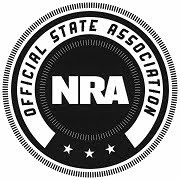Virginia has fast tracted its redistricting process due to this year's state legislative races where all 140 seats in the Virginia General Assembly (100 in the House of Delegates and 40 in the State Senate) are up for grabs. With the House controlled by the Republicans and the Senate by the Democrats, it promises to be a process worth watching as both sides attempt to protect their majorities. Forums are being held around the Commowealth to get reaction to the plans from the public. Neither the House or Senate plans were well received in Roanoke last night as the Roanoke Times
reports.
Speaker after speaker during a Roanoke meeting of the General Assembly's Committee on Privileges and Elections complained that both House and Senate proposals split precincts, carved up communities of interest and generally redrew districts in a confusing manner. "I think what we have here is representatives picking their voters, not voters picking their representatives," said Brown Burton, a Roanoke County resident. In particular, Burton was concerned about the Virginia Senate proposal put forth by Democrats in that chamber: "When I opened it up this morning and looked at it, I said this looks like someone on drugs did this with an Etch A Sketch."
Roll Call Politics
weighed in this morning on the redistricting efforts going on around the country and mentions Virginia as well.
George Mason University professor Michael McDonald, an adviser to the commission, said the division of power and Democrats' slim hold on the state Senate could cause further delay in agreement on a Congressional map. "What is likely to happen with these maps is the Democrats in the state Senate are going to hold the Congressional map hostage until they get a deal on the state legislative maps," he said. "That's their overall concern - we have a divided legislature, and they're worried they won't get a deal on the state Senate map," McDonald added. He confirmed the existence of a map proposal that would solidify the current 8-3 partisan breakdown of the Congressional delegation. That incumbent protection plan would especially help Rep. Gerry Connolly (D), he said, whose Northern Virginia district is the most competitive.
For the first time, Governor McDonnell also appointed a nonpartisan advisory commission to assist in the redistricting process. He tasked the commission to offer independent guidance to what is a decennially partisan process. Race is also playing a role in the Virginia map drawing. Currently, the 3rd congressional district is racially gerrymandered to insure that a minority-majority district where mostly black voters are crammed into one district.
Jim Dyke, a partner at McGuire Woods who sits on the advisory commission, said the third map increases the percentage of African-Americans in the majority-minority 3rd district of Rep. Bobby Scott (D). Meanwhile, there is a push by state Senate Democrats to increase the number of voting-age African-Americans in Republican Rep. Randy Forbes’ 4th district, which in its current form is already more than one-third African-American. With the state’s current black population at 20 percent, the Virginia Legislative Black Caucus increased its push last week to add another Congressional district to at least come close to being majority-minority.
Minority-majority districts do two things - it all but insures the election of a minority representative, but it also removes the incentive for candidates in surrounding districts to reach out to minority voters because they have been removed to a more homgenious district. This might be good partisan politics in that it aruably helps elect more Republicans in surburban districts, it is bad for the county as it further Balkanizes the nation into racial groups where blacks represent blacks, whites represent whites, etc. And all of this affects gun owners. As districts are redrawn, there is a chance that two pro-rights legislators are put into one district - thus reducing the number of pro-rights legislators in the assembly. If for instance population changes result in rural districts losing numbers and anti-gun northern Virginia districts gaining population and legislators, it makes the job of VSSA even more important as it works to protect the rights of gun owners. Stay tuned as the process heats up next week when legislators return for the reconvened session and redistricting session.








No comments:
Post a Comment